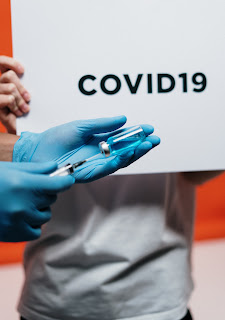The Great Covid-19 Vaccine Debate
The 2020s have been a rough time for the world, primarily because of the coronavirus pandemic which continues to ravage the economies of different nations across the world. However, the virus itself is just a part of the bigger problem which continues to create internal conflicts among most countries. While mass vaccinations have been factually proven to lower the risk of contracting COVID-19, governments and health institutions are presently in the midst of a debate on whether the major COVID-19 vaccine brands such as Pfizer, Moderna, and AstraZeneca can actually signify the end of the pandemic once and for all. There are many reasons from both sides of the vaccine debate on whether vaccines work or not. Let’s break down the reasons why people are in support or against the global COVID-19 vaccination campaign.
Predictably, those who believe that the COVID-19 vaccine is an effective tool against the pandemic ground their arguments in fact-checked statements by governing bodies such as the Centers for Disease Control and Prevention which have reported a decrease in serious illnesses and severe symptoms among fully vaccinated individuals — among many other statistical pieces of evidence that support the efficacy of getting jabbed. On the other hand, those who are against the vaccine cite the numerous side effects that can potentially come along with getting vaccinated such as developing allergic reactions and heart complications. Although a valid point, those who are against the vaccine tend to blow the likeliness of experiencing the side effect to unrealistic numbers causing unnecessary fear and reluctance to be vaccinated.
Other people are opposed to the vaccine because of a developed distrust towards the government and public health institutions. This is partly due to the outbreak of fake news and misinformation on the Internet which can spread like wildfire in a matter of minutes. Now labeled as an ‘infodemic’ by the World Health Organization, the massive volumes of information — whether fake or true — which can be uploaded online instantly makes it more convenient to create a culture of fear towards the COVID-19 vaccine.
Ultimately, the responsibility lies on social media platforms to improve their fact-checking policies with strict monitoring from governments. Ethics and social responsibility play a huge role now more than ever on the Internet and everyone has a part to play in curbing the misinformation pandemic against the COVID vaccine through proper and extensive research of facts.
By Neil Gregorio
Neil Gregorio is a graduating university student who writes as a hobby; when he is away from the keyboard, he spends his time watching Japanese animated shows and jamming out to his favorite rock music.
LinkedIn: https://www.linkedin.com/in/neil-gregorio/
Portfolio: https://www.clippings.me/neilgregorio















No comments